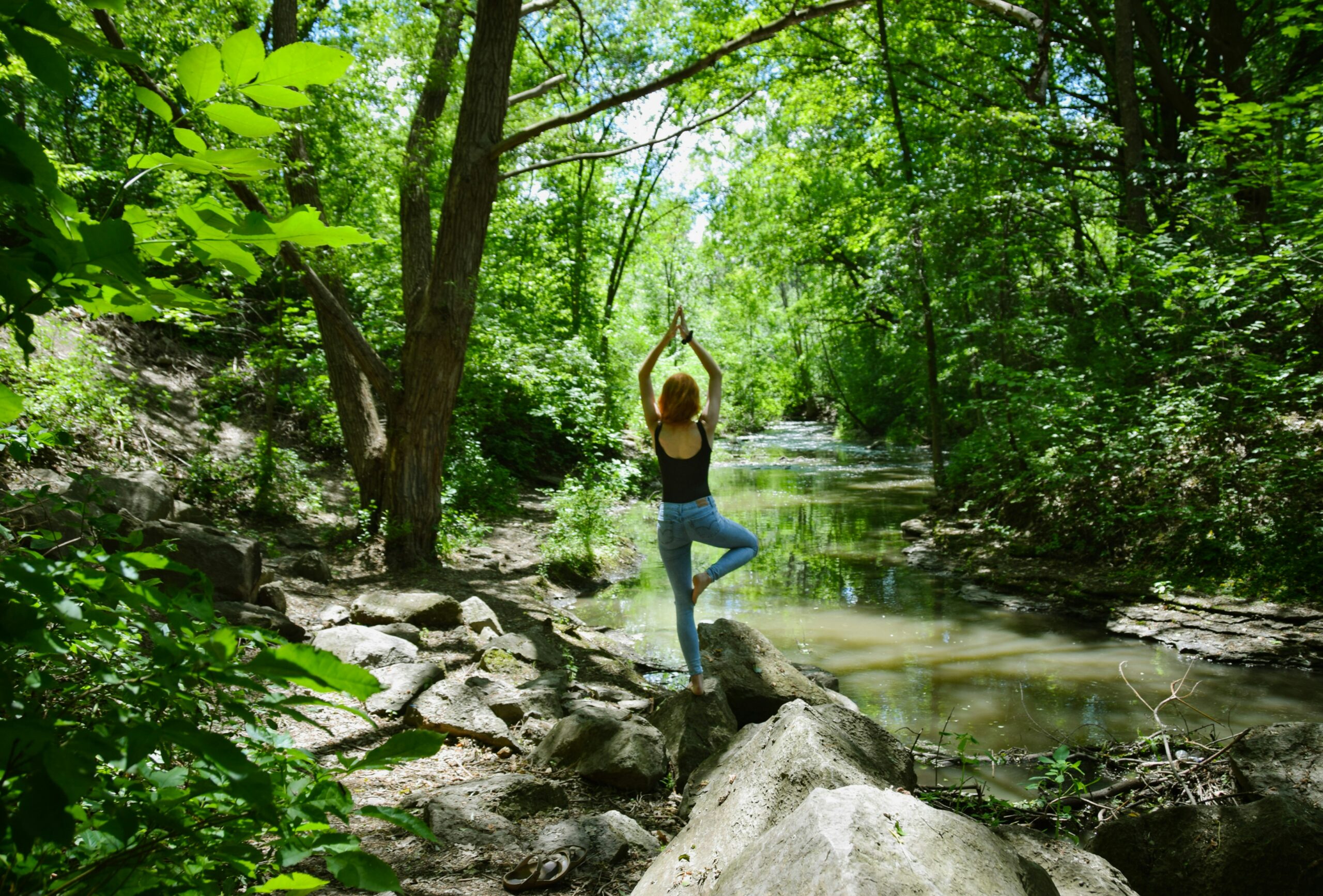Unlocking the Power of Mindfulness in Athletic Performance
In the world of athletics, where every second counts and every movement is scrutinized, the notion of mindfulness might seem, at first glance, a little out of place. After all, how can the practice of being present and aware in the moment possibly enhance performance on the field, court, or track? Yet, as many athletes are discovering, integrating mindfulness into training routines is not only beneficial but can be transformational. So, what’s the secret sauce behind this mental approach?
The Intersection of Mind and Body
Mindfulness, at its core, is the practice of being fully engaged in the current moment without judgment. It’s about focusing your attention, clearing the mental clutter, and allowing yourself to absorb the experience at hand. For athletes, this translates to a heightened awareness of their bodies, their movements, and their surroundings. Think of it as a mental tuning fork that helps athletes harmonize their physical abilities with their mental state.
To illustrate this point, let’s take a look at Serena Williams, one of the most iconic figures in tennis. Williams has openly discussed her use of mindfulness techniques to enhance her performance. Whether she’s meditating before a match or visualizing her serves, her ability to center herself has undoubtedly contributed to her success. In her own words, she remarked, “Mindfulness allows me to stay focused and present, which is crucial in a high-pressure match.”
Mindfulness and Performance: The Science Behind It
Research has shown that mindfulness can lead to improved focus, reduced anxiety, and enhanced emotional resilience—all essential traits for athletes. A significant number of studies suggest that incorporating mindfulness practices can lead to better athletic performance. For instance, a study conducted by researchers at the University of Utah found that participants who practiced mindfulness demonstrated improved focus and reduced performance anxiety during high-pressure situations.
But why does this happen? It seems that mindfulness promotes a state of relaxation that allows athletes to tap into their flow state—the magical zone where time seems to stand still, and everything clicks. In this state, athletes often report feeling more in control and capable of executing their skills with precision.
Practical Mindfulness Techniques for Athletes
Okay, so how do you actually implement mindfulness into your training? It’s not as daunting as it may sound. Here are some practical techniques:
- Breathing Exercises: Simple yet effective. Focusing on your breath can help center your thoughts and calm your mind.
- Meditation: Even just a few minutes each day can work wonders. It doesn’t have to be fancy—just find a quiet spot and focus on your breath.
- Visualization: Picture yourself performing your sport perfectly. This mental rehearsal can enhance confidence and reduce anxiety.
- Body Scans: This involves paying attention to different parts of your body, helping to develop a deeper awareness of physical sensations.
Let’s not forget the classic example of Michael Jordan. He was known for his pre-game rituals, which often included visualization techniques. Jordan would mentally rehearse his moves and shots before stepping onto the court. This practice not only helped him perform at his best but also calmed his nerves before crucial games. I remember hearing an anecdote about how he would sit in a quiet corner, eyes closed, channeling his focus—an image that has stuck with me through the years.
Mindfulness in Team Sports
While mindfulness can be beneficial for individual athletes, it’s equally valuable in team sports. Consider how important communication and synergy are in a basketball game or a soccer match. Mindfulness can help improve these aspects by fostering better focus and emotional intelligence among teammates.
A study published in the Journal of Sports Psychology highlighted how mindfulness training improved communication among soccer players. The players who practiced mindfulness were more attuned to their teammates, leading to more cohesive gameplay. Imagine a scenario where the team is not only physically prepared but mentally connected—sounds like a recipe for victory, doesn’t it?
Challenges and Misconceptions
Despite the growing popularity of mindfulness, there are still some challenges and misconceptions. One common myth is that mindfulness is only for those who are naturally calm or zen-like. The truth is, mindfulness is a skill that can be developed through practice, regardless of one’s initial temperament.
Another challenge is the misconception that mindfulness takes too much time. In reality, it can be seamlessly integrated into existing training. Even a few minutes of mindfulness practice can lead to significant benefits. It’s like sneaking in a power nap—short but oh-so-effective.
Real-Life Success Stories
There are countless athletes and teams that have embraced mindfulness with remarkable results. One standout example is the New Zealand All Blacks, the national rugby team known for their prowess on the field. The All Blacks have incorporated mindfulness into their training regimen, emphasizing mental preparation alongside physical conditioning.
According to their former coach, Steve Hansen, “Mindfulness helps players stay grounded and focused, especially in high-pressure situations.” The team has reported improved performance and cohesion, which is evident in their consistently strong track record. It’s not just rugby; mindfulness is slowly but surely making its way into other sports, from soccer to basketball and beyond.
Mindfulness Beyond the Field
It’s important to note that the benefits of mindfulness extend beyond athletic performance. Athletes often face immense pressure, and cultivating mindfulness can help manage stress, anxiety, and even personal challenges. For many, the transition from an athletic career to life after sport can be daunting. Mindfulness equips them with tools to navigate these changes more effectively.
I can’t help but think of a retired athlete—let’s call him Tom. After years of competitive swimming, Tom struggled with the transition. He felt lost without the structure of training. However, after discovering mindfulness techniques, he found solace in meditation and breathing exercises. It helped him regain a sense of purpose and calm during this significant life change.
Getting Started with Mindfulness
If you’re an athlete looking to unlock the power of mindfulness, here’s how to get started:
- Set aside time each day for mindfulness practice—start with just five minutes.
- Find a comfortable position, whether sitting or lying down.
- Focus on your breath—notice the inhalation and exhalation without trying to change it.
- If your mind wanders (and it will!), gently bring your focus back to your breath.
- Consider incorporating mindfulness into your warm-up routine before training or competition.
Over time, you may find that mindfulness not only enhances your athletic performance but also improves your overall well-being. Remember, it’s a journey, not a sprint. (And trust me, nobody’s expecting you to achieve zen-like status overnight.)
Conclusion: The Future of Mindfulness in Sports
As we traverse through the ever-evolving landscape of sports, mindfulness is emerging as a crucial component of athletic training. While the physical aspect of training will always be paramount, the mental side is gaining recognition as equally important—if not more so. Athletes who embrace mindfulness can cultivate not just better performance but also a more fulfilling athletic experience.
So, the next time you lace up your sneakers or prepare for a competition, take a moment to breathe, center yourself, and be present. Unlocking the power of mindfulness might just be the game-changer you’ve been looking for. Who knows? You might find yourself in that coveted flow state before you even realize it.
As the legendary coach Phil Jackson once said, “The mind is a powerful thing. It can take you through walls.” So why not start breaking down those walls today?




